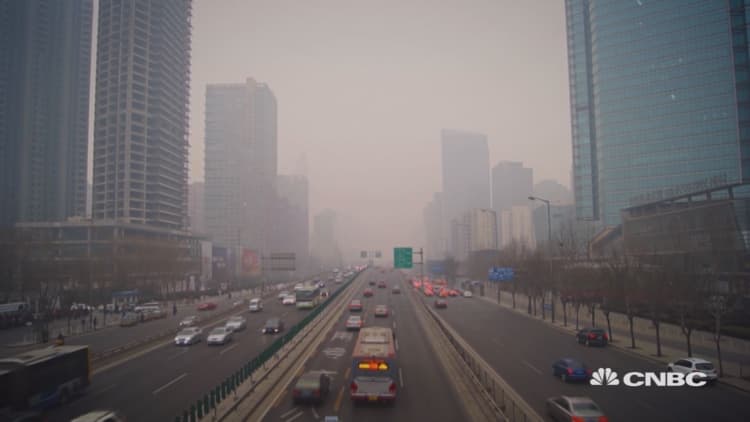
One of the world's great capitals, Berlin, is a center of culture, politics and business. The city is also seeking to put itself at the forefront of green living, with a range of initiatives aiming to improve its residents' quality of life.
An 'environmental zone', for example, is an area in the city's center where only low-emission vehicles are allowed to, while roughly 438,000 trees line the city's streets, according to authorities.
Now, one start-up is turning to moss to give air quality – and the lives of millions of city dwellers – a boost.
"We're commercializing more than 10 years of academic research… (about) specific moss cultures which you can find in the woods, and they have the ability to literally eat up air pollution," Denes Honus, chief executive of Green City Solutions, told CNBC's Sustainable Energy.
The CityTree is a vertical structure filled with moss cultures and other vascular plants that clean pollution from the air. The structure also contains sensors that are able to control all the moss cultures in real time, to let operators know if they have enough of water, nutrients and salt.
Around the world, air pollution is becoming a serious problem. In September, the World Bank said it had become the "deadliest form of pollution" and was now the fourth leading risk factor for premature deaths.
In 2013, these deaths cost the global economy around $225 billion in "lost labor," according to a joint study by the bank and the Institute for Health Metrics and Evaluation (IHME).
For Honus, the qualities of moss could help to offset problems caused by air pollution.
"One handful of moss has the same leaf surface as a normal tree – a tree in your street, in your city," Honus added. "But on these leaves of the moss cultures, there are… little bacteria, and these bacteria can, once in contact… with carbon, or with particulated matter, they can convert this into their own biomass."
The team at Green City Solutions believe that, when it comes to ridding our cities of pollution, the technology they have developed can compete with nature, with CTO Victor Splittgerber stating that "one CityTree is as powerful per leaf surface as 275 normal trees."
"Already, 50 percent of the world's population is living in cities, so if you solve their health… then you really have a global impact," he went on to add.




